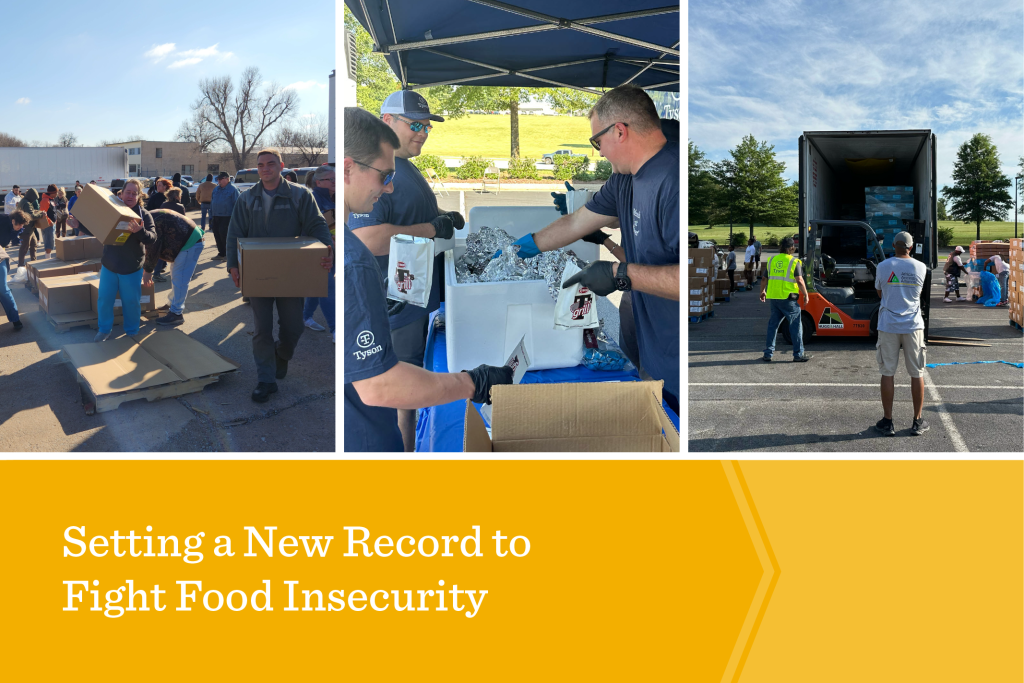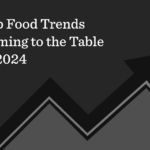We’re all about setting new records, especially when it comes to supporting local communities. This year, Tyson Foods has reached an annual record high in protein donations, giving more than 40 million pounds of protein – the equivalent of 120 million servings, or approximately 1,300 truckloads – to address food insecurity.
Reports from the U.S. Department of Agriculture (USDA) show increasing levels of food insecurity across the U.S. Among households with children, 17.3% are food insecure, up nearly 5 percentage points from 2021.
Global supply chain issues and inflation are putting additional pressure on American pocketbooks. In the face of that, our company has more than doubled its 2022 donations volume of 19.5 million pounds and is investing nearly $80 million in free products to fill the protein gap for underserved and vulnerable populations.
“As a food company with a mission to feed the world, we are honored to work alongside a network of outstanding community organizations to collaborate and address the growing demand for emergency food access,” said Tyson Foods Senior Director of Social Impact Tim Grailer. “In 2023, our company’s protein contributions have reached more than 195,000 organizations through local, regional and national partnerships.”
As one example, Tyson Foods has donated more than 41 million pounds of protein in the past three years to the Feeding America® network, which includes 200 member food banks and 60,000 partner agencies, food pantries and meal programs.
Fred Glass, President/CEO of Gleaners Food Bank of Indiana, notes the importance of protein for the food insecure. “Gleaners will likely distribute a record amount of food this year. Our priority, however, is not just the quantity of food we distribute, but also the nutritional value of that food. Protein is the No. 1 requested food item in the Feeding America network. The protein we receive from Tyson Foods is a high-quality healthy option for our neighbors facing food insecurity. Gleaners Food Bank of Indiana, Feeding America food banks across the country, and the neighbors we all serve greatly benefit from the generosity of Tyson Foods.”
Stephen Raeside, Tarrant Area Food Bank Chief External Affairs Officer, shared how protein is always in demand among the hungry families served in North Texas, yet can be difficult to obtain. “We couldn’t distribute one million well-balanced, healthy meals each week without our friends at Tyson Foods. They understand our sourcing problems, and work to overcome them – to the tune of nearly 4 million pounds of donated protein in the last five years,” he said.
Additional company volunteer initiatives include the Tyson Protein Program, which delivers fresh and frozen protein from more than 120 of its operating facilities to help stock hundreds of food banks, pantries and schools to underserved communities. Products are distributed via partnerships through the national and local charitable food system, including Feeding America and Military Family Advisory Network (MFAN), as well as new partners like GENYOUth.
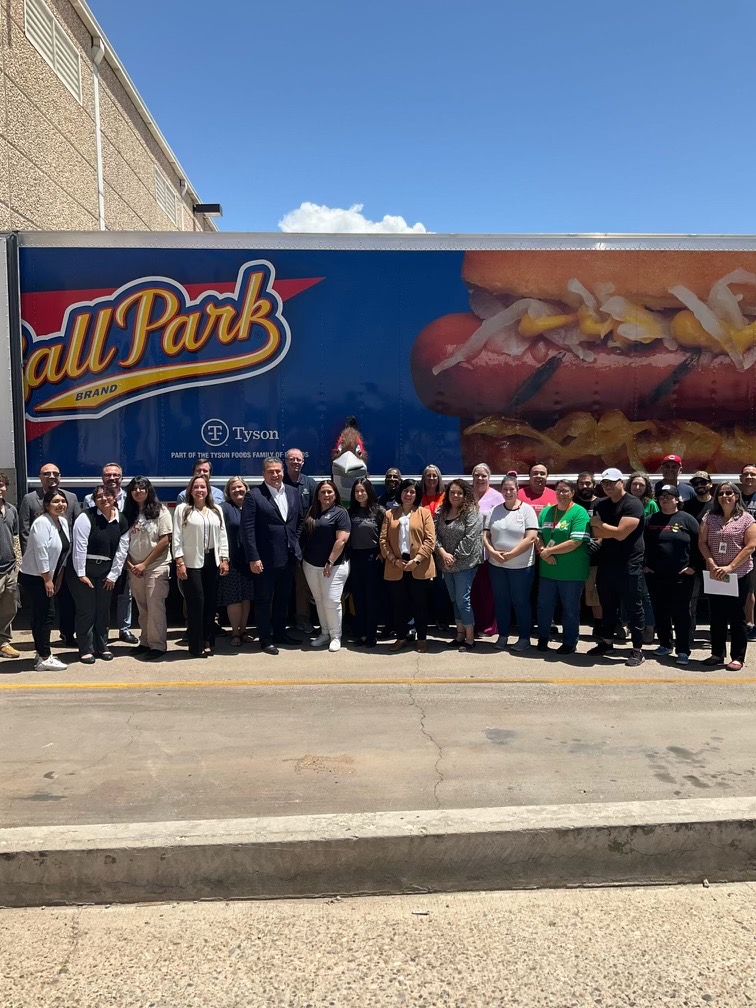
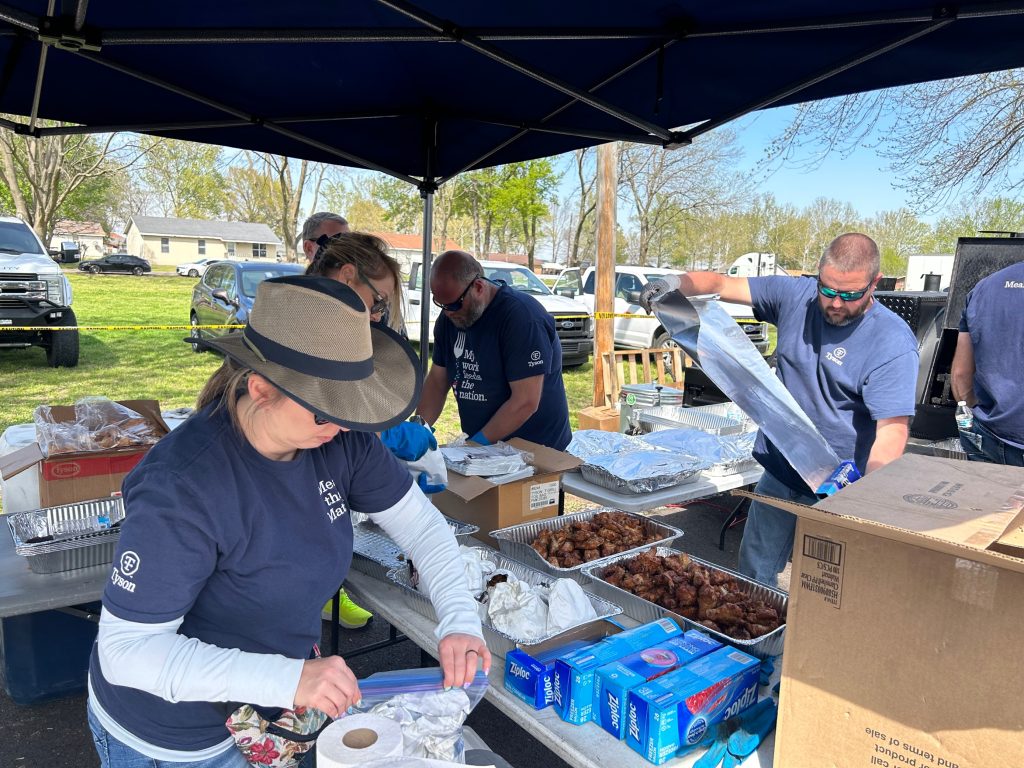
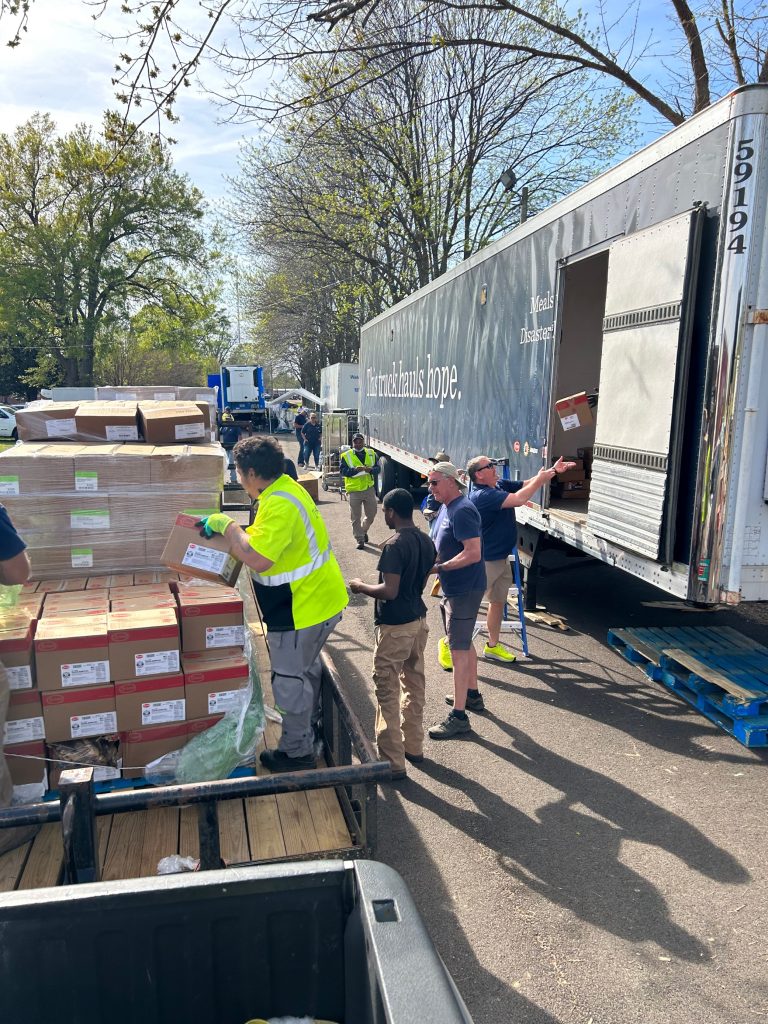

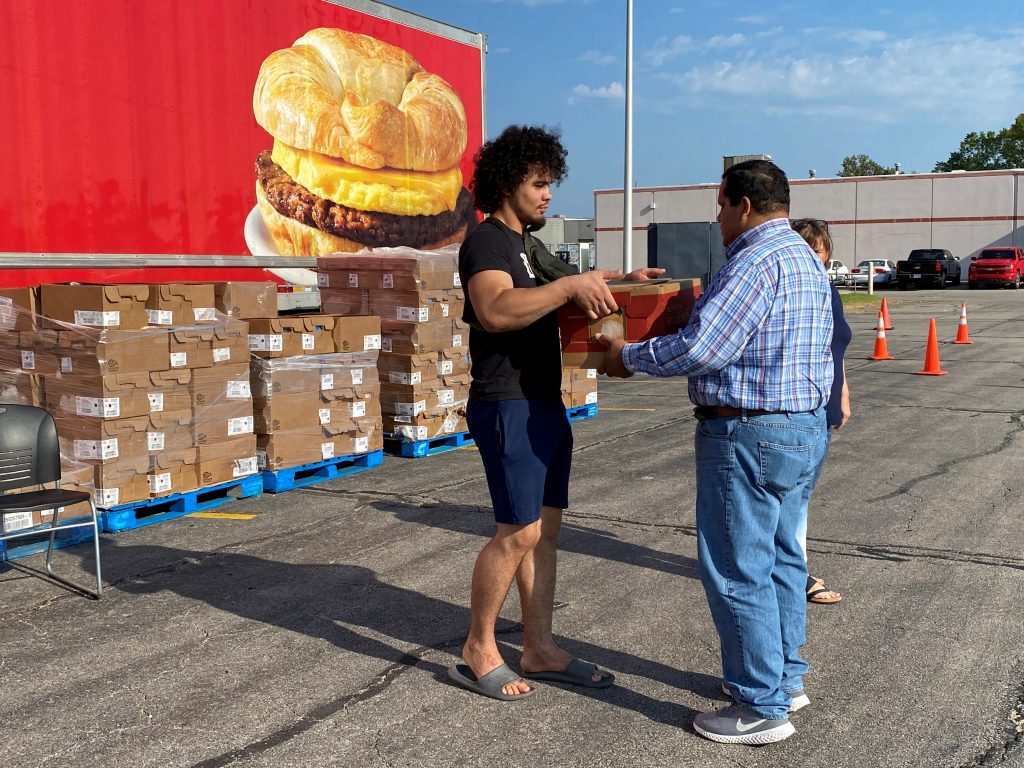
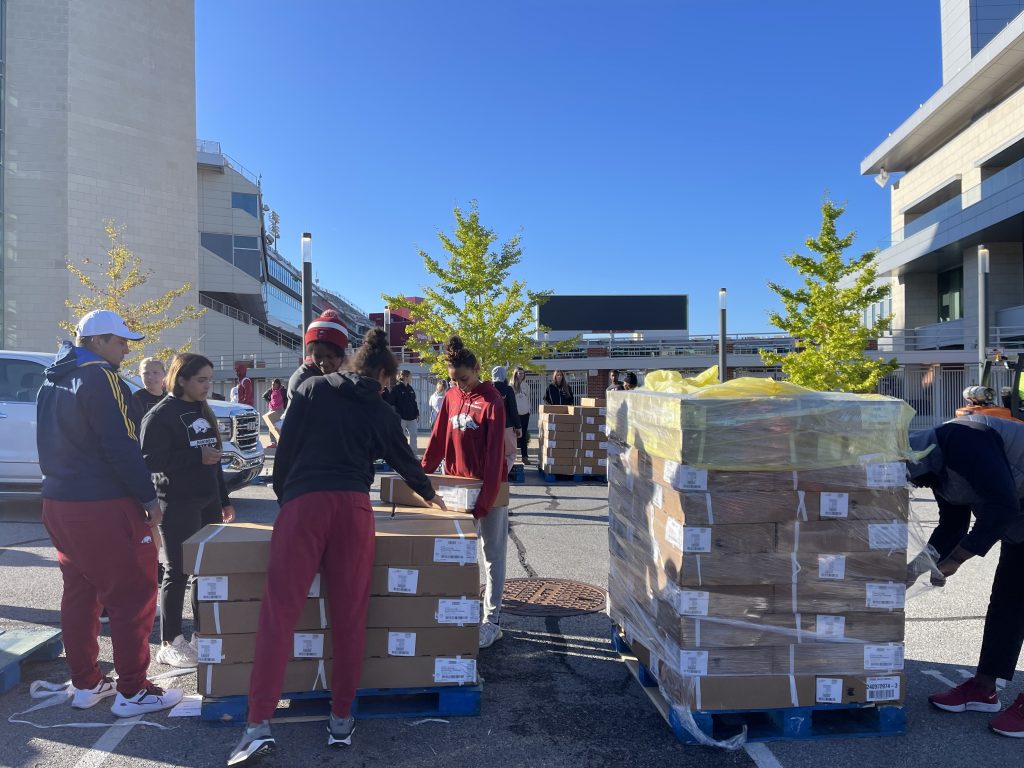
Help during natural disasters
Along with helping to close America’s food insecurity gap, the Tyson Meals that Matter® program is responsible for delivering nearly 2 million pounds of protein in response to natural disasters in the communities where it operates. This year alone, we have deployed disaster relief services to Maui, along with Rolling Fork, Mississippi and Wynne, Arkansas, to supply those communities with hot meals and restock local food bank freezers.
Our disaster relief efforts sometimes go beyond providing protein. Tyson Foods recently unveiled its Meals that Matter® Mobile Command Center, a 53-foot company trailer equipped with the latest technology, electronic equipment and seven workstations with Wi-Fi. The Command Center offers increased connectivity and enhanced community services when natural disasters occur nationwide.
Tyson Foods donates more than just protein to communities in need – we also deliver hope. Learn more about our company’s deep commitment to combating food insecurity and providing disaster relief.
*Tyson estimates that 4 ounces of protein equates to one meal.

